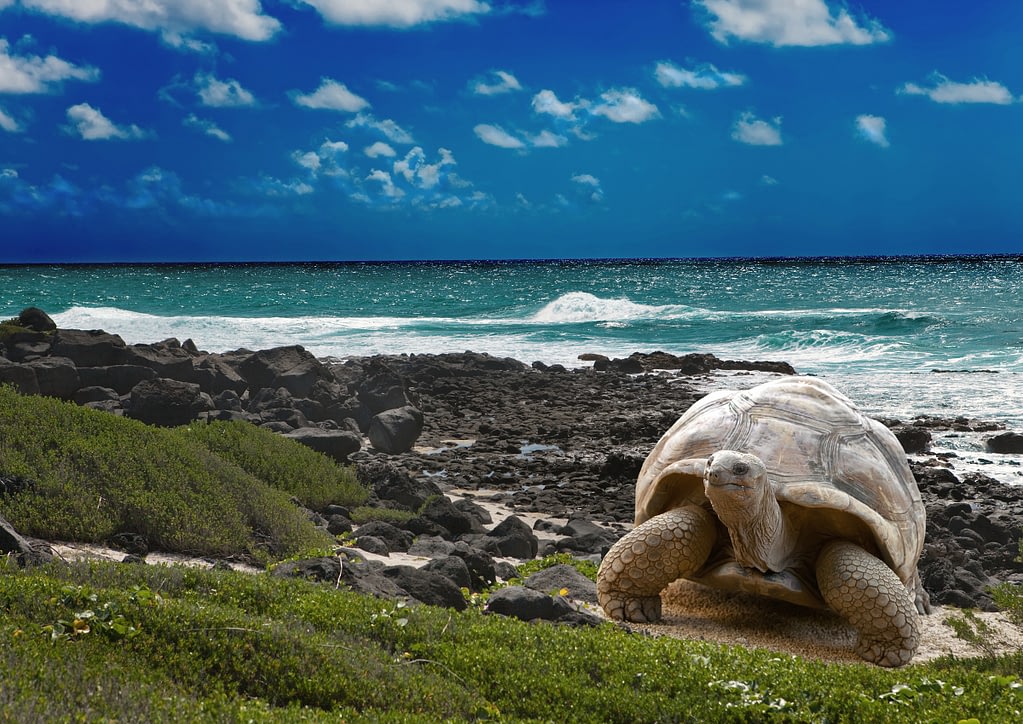The Charles Darwin Research Station is situated in the outskirts of Puerto Ayora on the Galapagos Islands. Established in 1964, it is the headquarters of the Charles Darwin Foundation, an international not-for-profit organisation that undertakes scientific research and provides technical information and assistance to ensure the proper preservation of the Galapagos Islands.
At the Charles Darwin Research Station, you will find a museum and information centre where you can learn much about the wildlife and ecology of the Galapagos Islands. There is also a breeding centre and a facility for incubating baby tortoises, whch are taken care of until they are old enough to be released into their natural habitat. The Galapagos Islands are home to 11 different subspecies of the giant tortoise and several of them can be seen up close at the station.
The Charles Darwin Foundation carries out its activities under a conservation research and guidance agreement with the Ecuadorian government. It is part of a network of local and national organizations supporting the protection of the Galapagos islands and for 50 years has worked closely with the Galapagos National Park Service, the main government authority overseeing the safeguarding of the islands, providing scientific research to help conserve this living laboratory.
Over 100 scientists, educators, research assistants, support staff, and volunteers from all over the world are working on research and conservation projects to protect the Galapagos ecosystem and its endangered species. However, the organisational staff are 90% Ecuadorian and CDF is committed to the training of Galapagos residents as future scientists and conservationists for the good of the islands and the country at large.
You can visit the Charles Darwin Research Station on a half -day or full-day excursion as part of any of our programmes in the Galapagos Islands.
- Location: Puerto Ayora, The Galapagos Islands
- Activities: Wildlife, Education
- Trip Tip:

